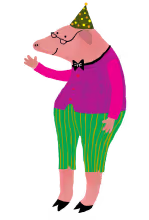
Helen Moylett And Nancy Stewart
Authors, Consultants, Speakers And All Round Experts
Helen Moylett is an independent early years consultant and writer. She has been head-teacher of an early years centre as well as working in schools and as a university lecturer. She was a Birth to Three Matters national trainer and from 2004-2011 she worked for the National Strategies and was centrally involved in developing the Early Years Foundation Stage and other national guidance. Helen was national lead for the Every Child a Talker programme. She is a Vice President of Early Education and tutors on the M.A. and PGCE courses at the Centre for Research in Early Childhood in Birmingham.
Nancy is a skilled teacher, consultant and trainer with nationally recognised expertise. She has worked closely with Department for Education policy teams in implementing national programmes, and in drafting revisions to curriculum and assessment in the Early Years Foundation Stage review. She has been central to developing national training materials on assessment and on pedagogy, particularly around the role of the adult in playful teaching and learning. In addition, early communication and language for thinking is a prime area of interest and expertise, along with children’s development as self-regulated learners.
Between them Nancy and Helen co-authored ‘Development Matters’ and many other publications.
Click the links below to find out more about Helen and Nancy:
Key takeaways:
- Speakers’ Background: Helen and Nancy are associated with institutions like Early Education and CREC in Birmingham. They contributed to key frameworks like ECAT (Every Child a Talker) and Development Matters, which influenced Kate’s Tales Toolkit. Their expertise underpins the webinar’s focus on language and thinking in early years.
- Barriers to Interaction: In many preschools, adult talk is dominated by **management talk** (e.g., organizing, behavior management), mirroring low-talk families from Hart and Risley’s study. This limits opportunities for meaningful dialogue. Adults often use strategies like eye contact but rarely engage in **cognitively challenging conversations** that extend children’s thinking.
- Encouraging Child-Led Dialogue: Adults should wait for children to initiate interactions, giving them time to respond (e.g., 3–5 seconds) rather than always leading. Silence can be powerful, though practitioners find it challenging to relinquish control and embrace the “unknown” of child-led conversations. For reluctant communicators, adults can mirror actions or subtly engage through non-verbal cues to build trust.
- Self-Regulation and Language: The webinar critiques the UK government’s narrow focus on emotional self-regulation (managing behavior) in early learning goals, advocating for **cognitive self-regulation**—thinking about one’s own thinking. Language is central to this, enabling children to process complex ideas, make choices, and develop autonomy. Martha Bronson’s work is cited, noting that self-regulated learners achieve more due to intrinsic motivation.
- Language as a Thinking Tool: Quoting Wittgenstein, “the limits of my language are the limits of my world,” the speakers stress that language expands children’s ability to grasp abstract concepts, imagine possibilities, and move beyond immediate experiences. Without words or sentence structures, thinking remains concrete, limiting creativity and problem-solving.
- Role of Play and Storytelling: Play, especially role play, naturally fosters higher-order thinking (e.g., problem-solving, perspective-taking). Children switch roles (e.g., princess to dog) and negotiate rules, demonstrating self-regulation. Stories, whether imaginary or recounting daily events, help children explore “what if” scenarios, reflect on emotions, and develop theory of mind (understanding others’ perspectives).
- Adult Role in Play: Adults should balance involvement and restraint, stepping back when play flows naturally but joining as a **conversation partner** to scaffold thinking. This involves recapping, clarifying, or suggesting ideas without taking over, maintaining the child’s agenda. For example, saying, “Sam doesn’t agree with you,” highlights differing perspectives, fostering theory of mind.
- Language as a Creative Act: Every sentence children create is a unique, imaginative act, like adults forming new sentences in conversation. This creativity is evident in bilingual children crafting sentences in multiple languages and in playful acts like telling jokes, which play with language’s flexibility.
- Conflict Management: Teachers can intervene by holding disputed objects, framing conflicts as shared problems (“What can we do?”), and suggesting ideas without imposing solutions, tailored to the children’s age and verbal ability.
Related Webinars

We'd love your feedback!
Did you love it or hate it? And what ideas have you got for upcoming webinars - big names you'd love to see or topics you'd like covered?

.avif)









